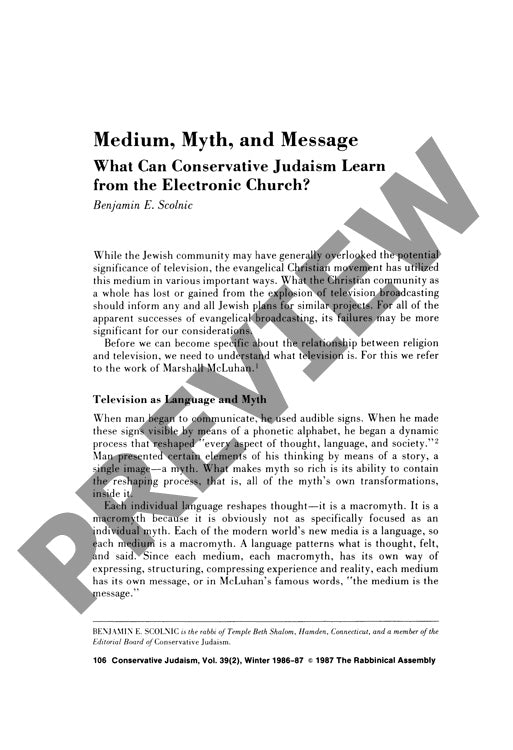Medium Myth and Message What Can Conserv
Couldn't load pickup availability
Television's potential as a religious medium presents Conservative Judaism with both opportunities and cautionary lessons, as revealed through analysis of evangelical Christian broadcasting experiences. Using Marshall McLuhan's media theory as a framework, television emerges as both a language and macromyth that actively shapes cultural values, positioning it as a direct competitor to traditional religious institutions. While evangelical Christian programming demonstrates apparent success, closer examination reveals it primarily reinforces existing beliefs rather than converting new followers, while potentially undermining local congregational vitality through competition for resources and attention. Through theoretical analysis of media effects, examination of Christian broadcasting practices, and a case study of a synagogue's Passover Seder television program, this research charts a strategic path forward for Conservative Judaism's engagement with television. The findings suggest Conservative Judaism should begin with ritual presentations and historical education to reclaim Jewish narrative from Orthodox monopolization, while coordinating television content with broader educational campaigns under scholarly oversight. The Jewish Theological Seminary's resources could provide foundation for national outreach, but television must serve primarily as a catalyst toward synagogue participation rather than a replacement for communal religious experience. Success requires careful balance to ensure the medium's power does not overwhelm or distort authentic religious messaging.

More Information
-
Physical Description
-
Publication Information
Published 1986-1987
ISBN
-
Publication Credits
Benjamin Scolnic

